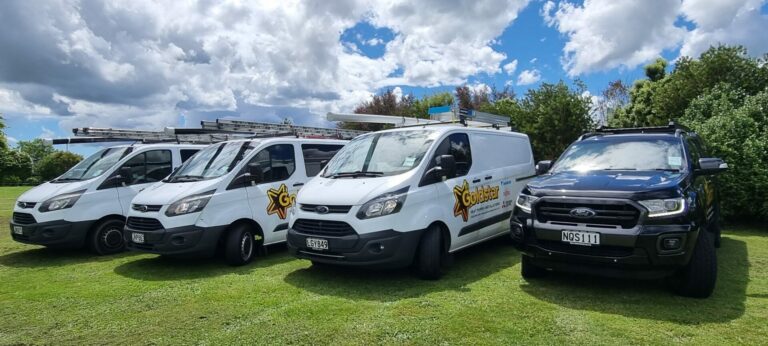Reducing the cost of running a heat pump during the summer in Tauranga involves optimising its efficiency, minimising unnecessary usage, and implementing energy-saving practices.
This article by Goldstar Heat Pumps is designed to guide you through the essential considerations before installing a heat pump in your home or business. It also provides tips on reducing costs during the summer while maximising your heat pump’s effectiveness.
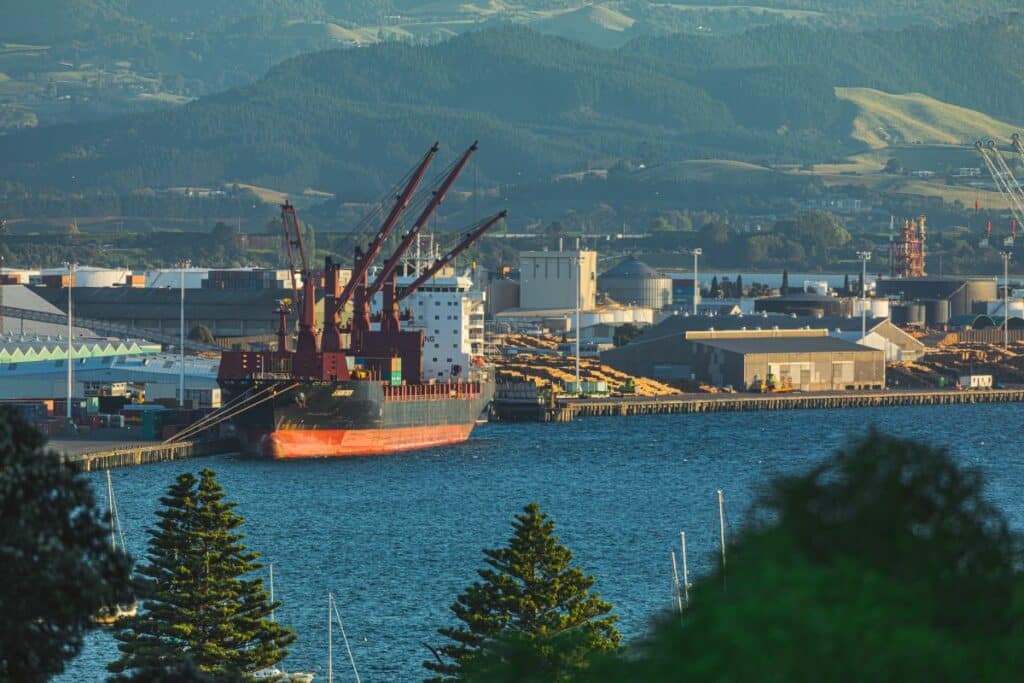
Tips To Help You Cut Down On Heat Pump Operating Expenses In The Summer:
Set the Right Temperature:
Adjust your thermostat to a moderate and comfortable temperature. The smaller the difference between the indoor and outdoor temperatures, the less your heat pump has to work.
Use Energy-Saving Modes:
Many modern heat pumps come with energy-saving or eco modes. Use these settings to optimise efficiency without sacrificing comfort.
Programmable Thermostat:
Invest in a programmable thermostat to schedule temperature adjustments based on your daily routine. This prevents the heat pump from running unnecessarily when you’re not at home.
Regular Maintenance:
Ensure your heat pump is well-maintained. Clean or replace air filters and have the system serviced regularly to keep it running at peak efficiency. We recommend you prepare a maintenance schedule or contract with a professional to keep the system in good working order.
Shade and Insulation:
Use curtains or blinds to block out direct sunlight and reduce the load on your heat pump. Proper insulation in your home also keeps cool air in and hot air out.
Seal Leaks:
Seal any gaps or leaks in doors and windows to prevent cold air from escaping and hot air from entering your home.
Zone Heating and Cooling:
If your heat pump supports zoning, only cool the areas you are using rather than the entire house. This can significantly reduce energy consumption.
Use Natural Ventilation:
Take advantage of cooler evening temperatures by opening windows and allowing fresh air to circulate in your home. This can give your heat pump a break during milder weather.
Fan-Only Mode:
On moderately hot days, use the heat pump’s fan-only mode to circulate air without running the compressor. This consumes less energy and can maintain comfort.
Avoid Frequent On-Off Cycles:
Frequent on-off cycling can reduce efficiency. Try to maintain a consistent temperature rather than frequently adjusting the thermostat.
Proper Sizing:
Ensure your heat pump is correctly sized for your space. An oversized unit will cycle on and off more frequently, while an undersized unit may struggle to cool effectively.
Heat-Reflective Roofing:
If you’re building or renovating, consider heat-reflective roofing materials, which can reduce the amount of heat entering your home.
Shade Your Outdoor Unit:
Provide shade or shelter for the outdoor unit to prevent it from absorbing excessive heat from the sun, which can reduce its efficiency.
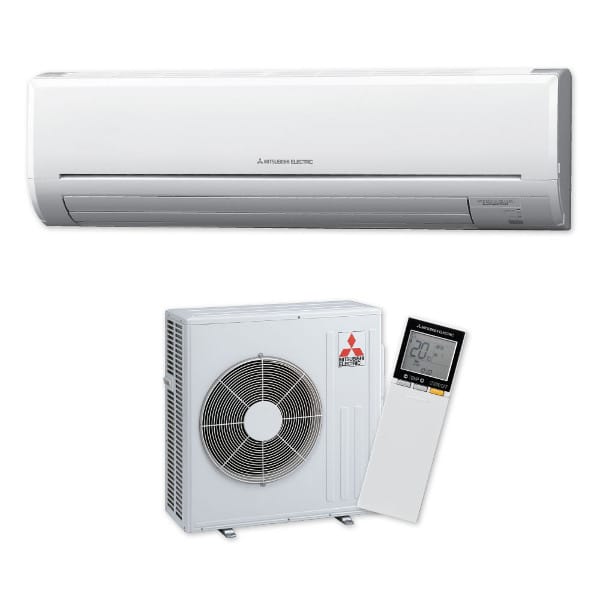
Consider Smart Thermostats:
Smart thermostats can help you monitor and control your heat pump remotely, allowing you to make adjustments based on real-time weather conditions and your schedule.
Solar Panels:
Consider pairing your heat pump with solar panels to generate your electricity, which can offset the cost of running the heat pump during the summer.
Off-Peak Energy Usage:
If your electricity plan offers time-of-use pricing, run your heat pump and other high-power electronics during off-peak hours when electricity rates are lower.
If you are looking at installing a heat pump for the summer, here are some tips to ensure your heat pump is going to be as efficient as possible once it is installed. This is because preparing your house for a heat pump installation is important to ensure the system functions efficiently and provides optimal comfort.
Here are some steps to take when preparing your house for a heat pump:
Select the Right Location:
Choose the most suitable location for the indoor and outdoor units. The indoor unit should be installed in a central area, preferably on an exterior wall. The outdoor unit should be in a well-ventilated, shaded area with proper clearance for air circulation.
Size the Unit Properly:
Ensure the heat pump is sized correctly for your home. One of our team can perform a load calculation to determine the appropriate size based on your house’s square footage and insulation levels.
Check Electrical Wiring:
Verify that your electrical system can handle the load of the heat pump. Some systems may require dedicated circuits or electrical upgrades to accommodate the heat pump’s power requirements.
Insulate and Seal:
Before installation, check and improve the insulation in your home. Proper insulation reduces the workload on the heat pump and helps maintain a consistent indoor temperature. Seal any gaps or leaks in doors, windows, and walls to prevent conditioned air from escaping.
Assess Ductwork:
If your heat pump uses ducts for air distribution, our team at Goldstar Heat Pumps can inspect and seal any leaks or gaps in the ductwork to ensure efficient airflow.
Clear Obstructions:
Clear the area where the outdoor unit will be installed of any debris, plants, or obstacles. Ensure there’s enough space for proper airflow around the unit.
Provide Shade:
If possible, provide shade for the outdoor unit. This can improve its efficiency by preventing it from being exposed to direct sunlight, which can cause it to work harder.
Plan for Drainage:
Ensure there is a proper drainage system for condensate that the indoor unit may generate. Goldstar’s technicians can help design and install this system.
Discuss Location with our Technicians:
Consult with our team at Goldstar Heat Pumps about the best locations for both indoor and outdoor units, considering factors like airflow, aesthetics, and noise.
Compliance with Regulations:
Check local building codes and regulations related to heat pump installations. Ensure your installation complies with these guidelines.
Clear Access for Installation:
Ensure that the installation team has clear access to the installation sites and enough space to work safely and efficiently.
Work with a Professional:
It’s highly recommended to work with a qualified HVAC professional. Our team at Goldstar can assess your specific needs and ensure a proper heat pump installation.
Implementing these strategies enables you to cut down on the summer operational expenses of your heat pump while ensuring a pleasant indoor atmosphere in Tauranga’s warmer seasons. Additionally, it equips you with the knowledge needed to install a new heat pump before summer arrives.
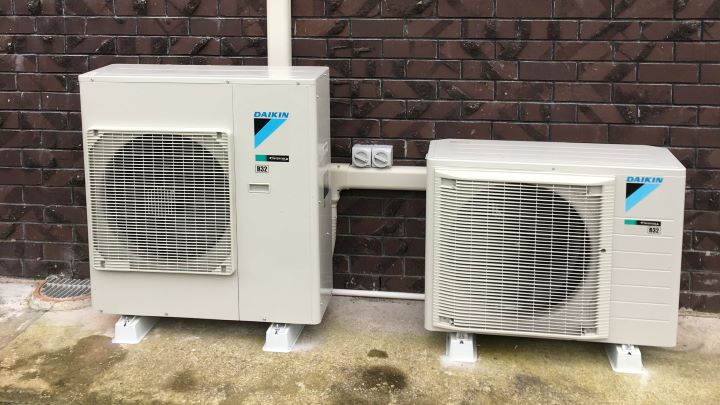
Here are the primary power costs you can expect during the Summer in Tauranga
Some of these costs are ones you may not even realise that you are doing but are paying for in the long run. Most are associated with cooling and increased energy assumption that you may not even realise is happening:
Refrigeration:
Fridges and freezers work harder in the summer months to maintain lower temperatures, as the ambient temperature is higher. This can lead to increased electricity consumption.
Increased Appliance Use:
During the Summer, you might use more energy-intensive appliances such as electric fans, dehumidifiers, and air purifiers to maintain comfort and indoor air quality. One way to work around this is to invest in energy-efficient appliances, particularly air conditioners, refrigerators, and fans. Look for the ENERGY STAR label when purchasing new appliances.
Pool Pump Operation:
If you have a swimming pool, the pool pump can be a substantial contributor to summer power costs as it circulates and filters the water. If you have a pool, consider reducing the operating time of the pool pump or using a more energy-efficient pump.
Outdoor Lighting:
Longer daylight hours in the Summer may lead to more use of outdoor lighting for extended evenings, which can add to your electricity bill.
Cooking and Food Preparation:
You may use outdoor grills, ovens, and stoves more frequently for cooking and food preparation during summer. This can increase energy consumption, especially if you use electric appliances.
Water Heating:
If you use an electric water heater, hot water consumption may increase due to more frequent showers, outdoor activities, and the use of hot water for cleaning after outdoor activities.
Increased Laundry:
More outdoor activities and recreation can result in additional laundry loads, which can lead to increased power costs if you use electric dryers.
Electronics and Entertainment:
Summer often means more time spent indoors, and the use of electronic devices, gaming consoles, and home entertainment systems can contribute to power costs.
Lighting:
While natural daylight is abundant during the summer, you may still use indoor lighting during the evenings or early mornings, which can contribute to power costs.
Air Conditioning/Heat Pump Usage:
The operation of air conditioning or heat pump systems to keep indoor temperatures comfortable can increase your power costs over the summer months. Cooling your home does increase your electricity bills, especially during hot and humid weather, but what’s the price of comfort?
To manage and reduce these common power costs during the summer, consider implementing energy-efficient practices and appliances, optimising your cooling system, and being mindful of your energy usage.
Reducing power costs during the Summer in Tauranga, New Zealand, primarily involves managing your energy consumption and optimising your home for energy efficiency.
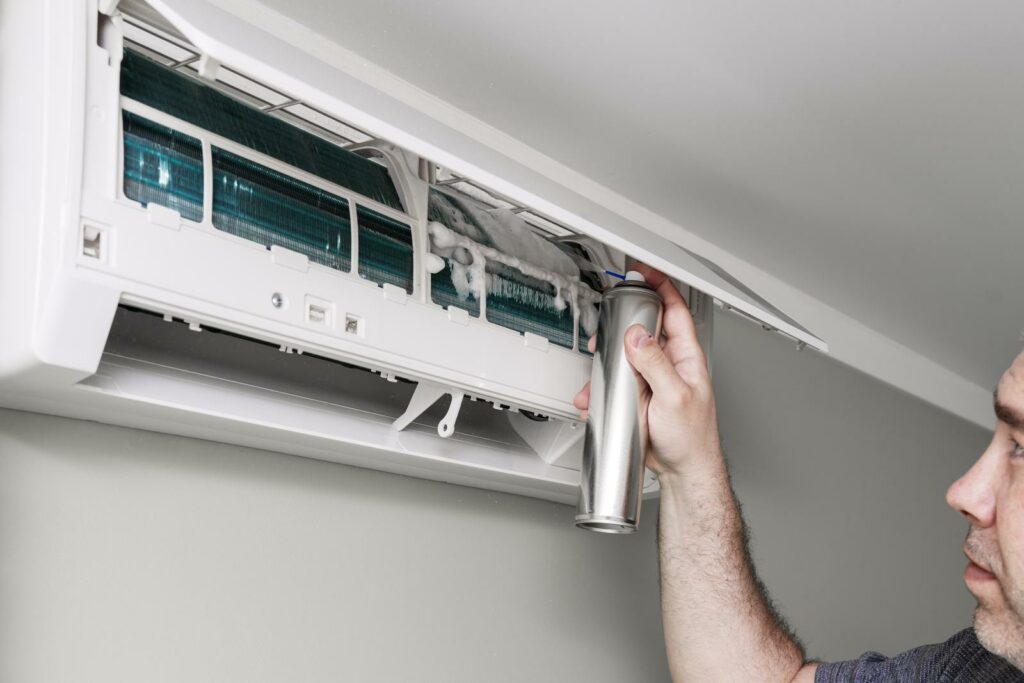
Here are several tips to help you lower your power bills during the summer months:
Set Your Thermostat Wisely:
If you have a heat pump, set it to a comfortable but not overly cool temperature. Every degree lower can significantly increase energy consumption. Keeping it well maintained helps reduce costs, and upgrading to a more modern heat pump increases the efficiency.
Close Curtains and Blinds:
Keep curtains and blinds closed during the hottest parts of the day to block out direct sunlight and reduce indoor temperatures. With Tauranga being one of the sunniest places in NZ it may be worth having the curtains facing the sun directly closed at any time of day to try and reduce the cooling required in that time.
Seal and Insulate:
Ensure that your home is properly sealed and insulated to keep cool air in and hot air out. This will reduce the workload on your cooling system.
Reduce Heat-Producing Activities:
Avoid using heat-producing appliances like ovens, stoves, and clothes dryers during the hottest parts of the day. Use these appliances in the evening or early morning when it’s cooler.
Optimise Lighting:
Switch to LED light bulbs, which produce less heat and consume less energy than traditional incandescent bulbs.
Unplug Electronics:
Many electronic devices consume power even when turned off. Unplug chargers, televisions, and other electronics when not in use to prevent any unnecessary energy usage.
Use Natural Ventilation:
Take advantage of natural ventilation during cooler evenings by opening windows and creating cross-ventilation to cool your home without relying on your heat pump.
Solar Panels:
Consider installing solar panels on your home to generate your electricity and potentially offset your power costs during the summer.
Be Mindful of Water Usage:
Use cold water for laundry and dishwashing to reduce water heating costs.
Plant Shade Trees:
Strategically plant trees or install shading structures to block the sun’s direct rays from hitting your home, reducing the need for cooling.
Consider Heat-Reflective Roofing:
If you’re renovating or building a new home, opt for heat-reflective roofing materials to reduce heat absorption and keep your home cooler.
Energy Audit:
Consider getting a professional energy audit to identify areas where your home can be made more energy-efficient.
Conclusion
By implementing these strategies and being mindful of your energy consumption, you can significantly reduce your power costs during the summer in Tauranga while still staying comfortable in the warmer months.
With this, if you are thinking of installing a heat pump or want any maintenance on an existing heat pump system, please contact us now at Goldstar heat pumps to find out more.
Chat to the team 0800 864 964
or email us – admin@goldstarheatpumps.co.nz

